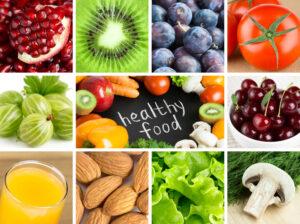Is it true that breakfast is the most important meal of the day?
Okay, it is counter intuitive but everyone I know who is in shape and living fit, healthy, active lives eats breakfast. It seems wrong – if you are overweight, surely it makes sense to skip a meal, right? No, by not eating at regular intervals, your body thinks it is going into food deprivation conditions – i.e. starvation – and you end up craving more calories. If you skip a meal, you can be almost certain, you will eat too much next time. There is also every chance that, if you are crazily hungry by lunchtime, you will make all the wrong choices in what you eat. People who eat a well balanced meal in the morning are less likely to think ‘hmmmm, four donuts is a good idea’ when it comes to lunchtime.

There is also the effect of breakfast upon your energy levels and concentration span. The intake of calories early in the day will boost your blood sugar levels and prepare you for the day.
A stress buster
Breakfast also has a positive effect on reducing one of the body’s stress hormones, cortisol, which is produced by the adrenal glands. Cortisol influences, regulates or modulates many of the changes that occur in the body in response to stress including stabilising blood sugar levels and maintaining blood glucose and Immune responses to name a few.
Eating breakfast helps your body bring down your cortisol levels, which are at their highest early in the morning. If you have chronically high cortisol levels then skipping breakfast may not be the best option for a healthy and stress-free start to the day.
While this is commonly-held wisdom that has withstood the test of time and place – breakfast is an important meal in every culture and country – there are some caveats.
It’s important to get your fuelling right
What we eat first thing in the morning can vary wildly across the globe. Here is the UK we might speak in tones of near-worship about the ‘full English’, but traditional breakfast foods range from oats and grains through to noodles, rice and salt-fish and almost everything in between.
The common belief is that eating breakfast will give your metabolism a boost and that not eating will mean that it slows dramatically. Certainly the calories you eat will affect your metabolism (and your energy), but it’s the composition of the calorie; whether it’s protein, carbohydrate or fat, that really impacts your metabolism. Eating the wrong food can be just as harmful as not eating at all.
Skipping breakfast won’t make you obese
Not everyone in the world of exercise and nutrition subscribes to the theory that breakfast is the be all and end all. Some argue that the metabolic benefits of breakfast have been greatly exaggerated by the mainstream media, particularly in adults. Links between missing breakfast and weight gain, the more popularly-held belief, is purely behavioural rather than a scientifically proven reaction. Contrary to popular belief, these nutritionists argue that skipping breakfast won’t automatically make us reach for a donut later in the day.
If you’re training, you may have been programmed never to miss breakfast, but what are the real implications of doing so? Many of those who don’t eat breakfast miss it because they simply aren’t hungry first thing in the morning or feel nauseated. If that’s the case, you’re better off listening to the messages your body is sending you and react accordingly.
You are what you eat
The next time you’re in a rush and can’t decide whether to have an early breakfast or not remember, what you have is more important than what time you have it. Go for protein, healthy fats and slow release carbohydrates to get your day started in true health and fitness style.








